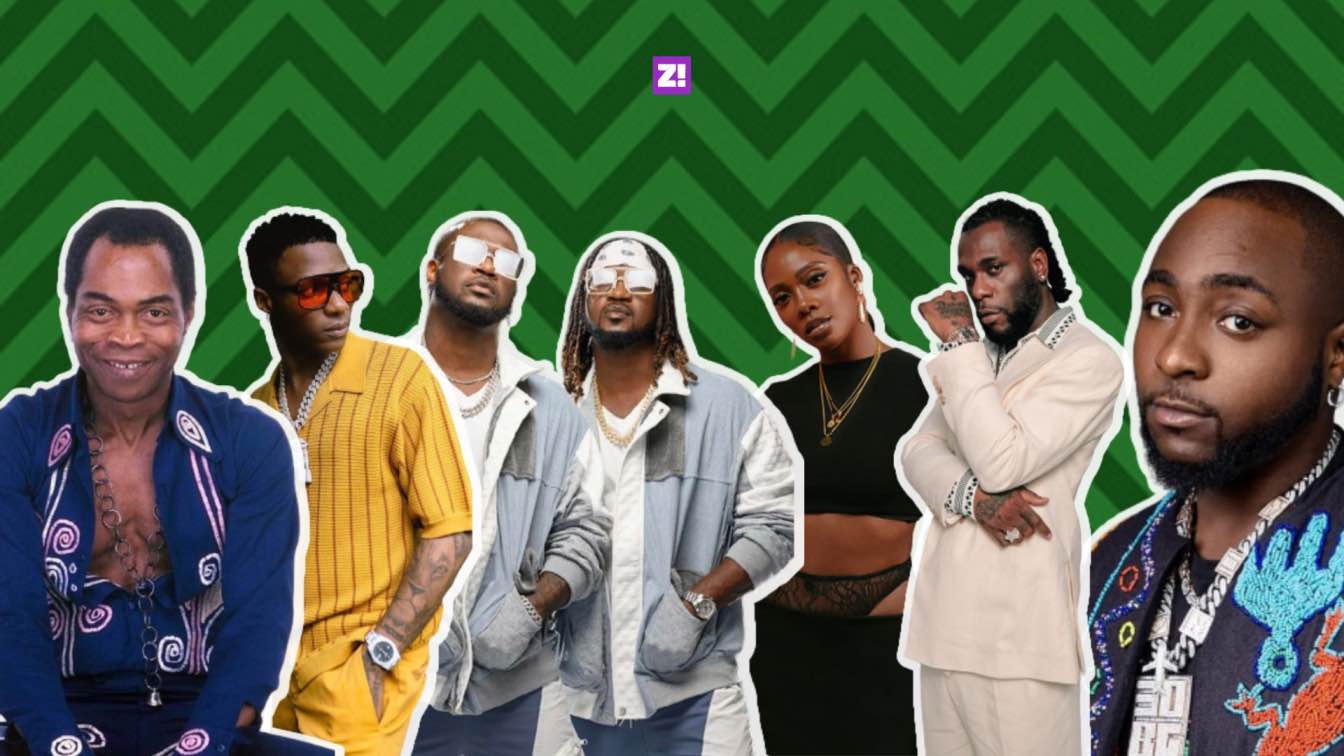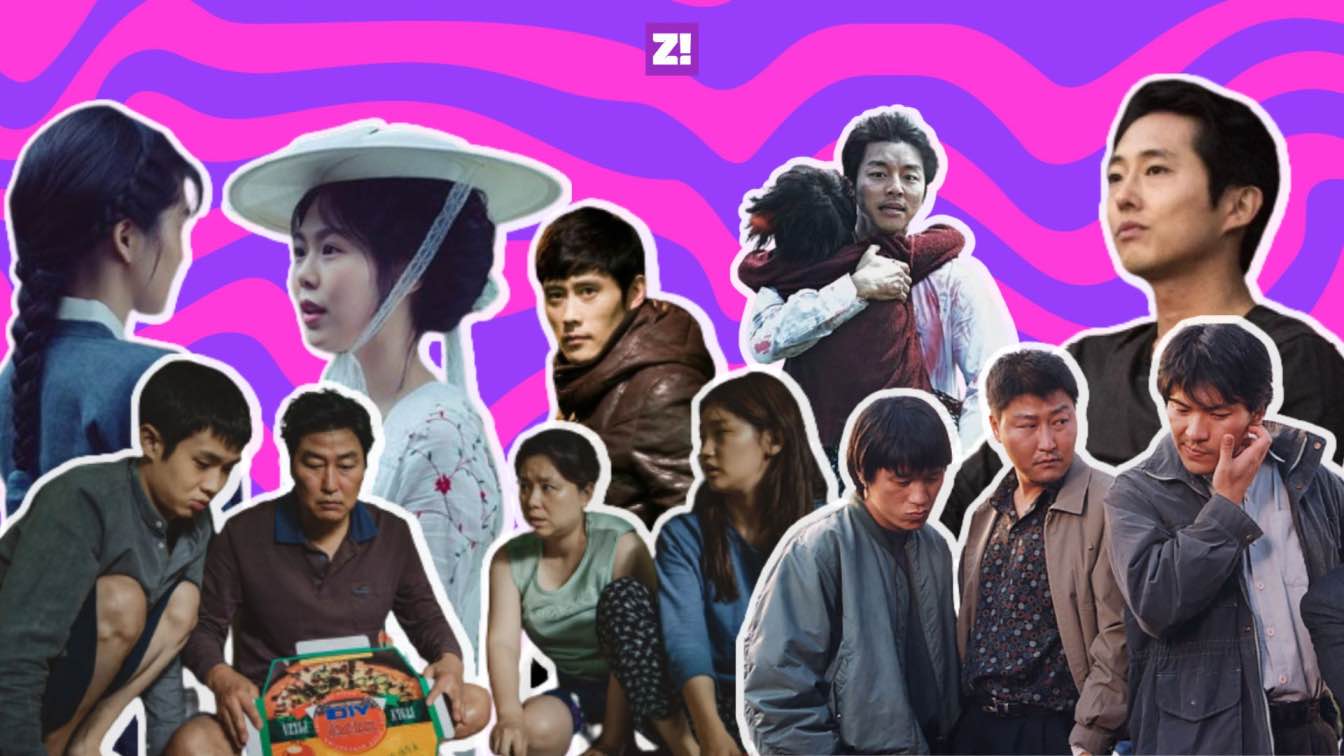Encanto is the latest Disney animation to have the world in a massive chokehold. If you thought Let it Go from Frozen was inescapable in 2013, wait until you hear and become completely obsessed with We Don’t Talk About Bruno (ooooo). Centered around a family — The Madrigals — that use their magical powers to manipulate an entire village into worshipping them, it’s hard to watch Encanto and not immediately see how it could easily pass for a Nigerian story. Let’s get into it.
1. Abuela is very much a Nigerian politician
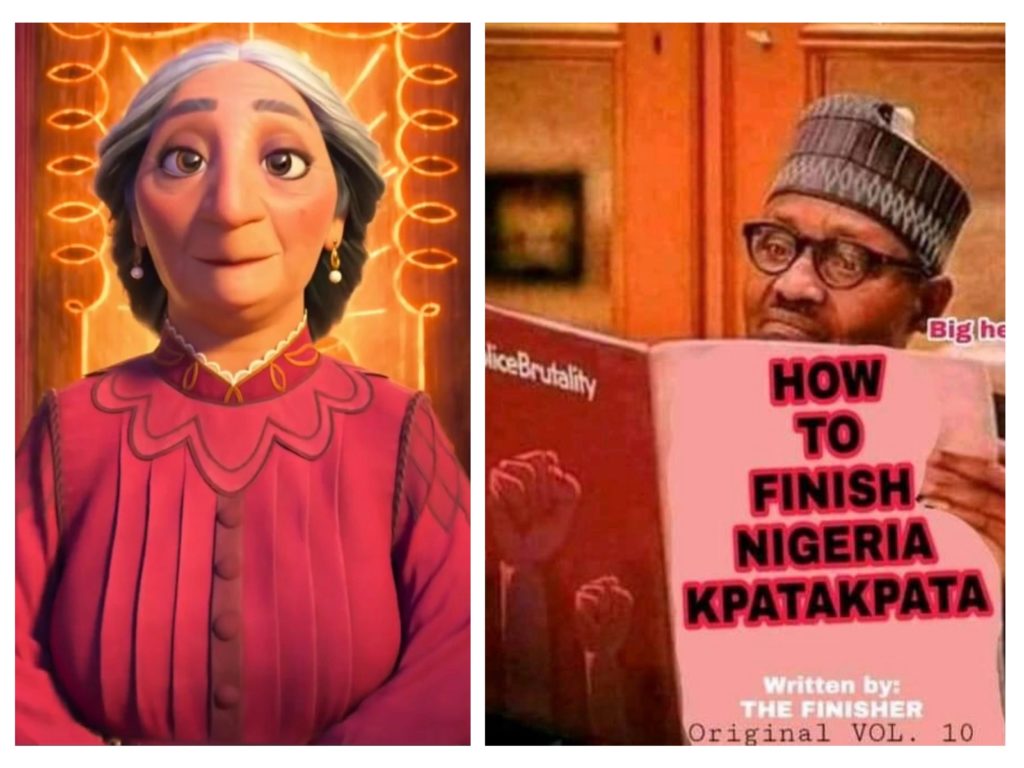
Encanto introduces us to the most problematic Disney grandma ever! Not only does Abuela gaslight her family into following her blindly, but she also puts so much pressure on them that even when she messes up, they sort of feel it’s their fault. Sounds familiar? Nigerian politicians tend to feed us their “I never had shoes” stories during elections but the moment they taste power, omo, serious one chance. They become inaccessible and untouchable. When elections come around again, they use the same power we gave them to rig and maintain the status quo. What happens during all of this? Well, Nigerians spend a lot of time blaming each other for not reading the signs. Yes, I know this is dark AF, but you can see it too, right?
2. Louisa and Nigerian first daughters are in the same WhatsApp group
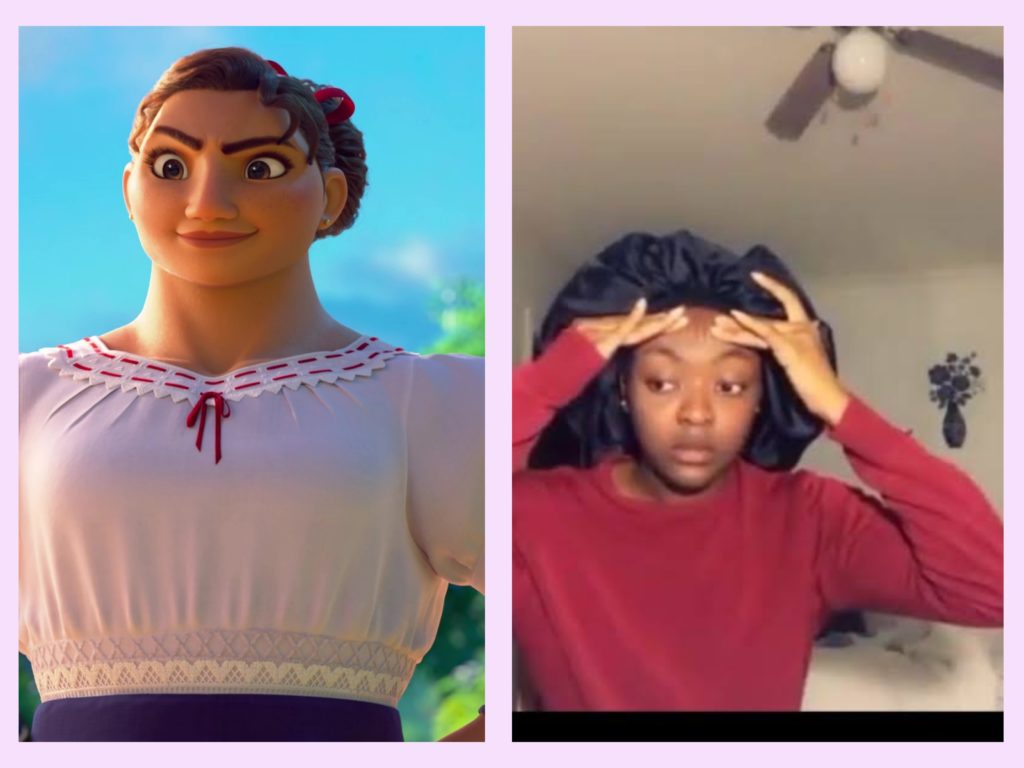
This babe was literally building bridges like Bob the Builder and carrying eight donkeys on her back for random villagers just because she was the strongest daughter. It’s giving Nigerian first daughter with a dash of slavery. In Surface Pressure, one of the catchy songs on Encanto, Louisa sings about being under so much pressure, she’s literally about to explode. Girl, we get it. You need to pack your bags and escape before they make you turn semo at 2 a.m.
3. That magical candle is giving babalawo jazz
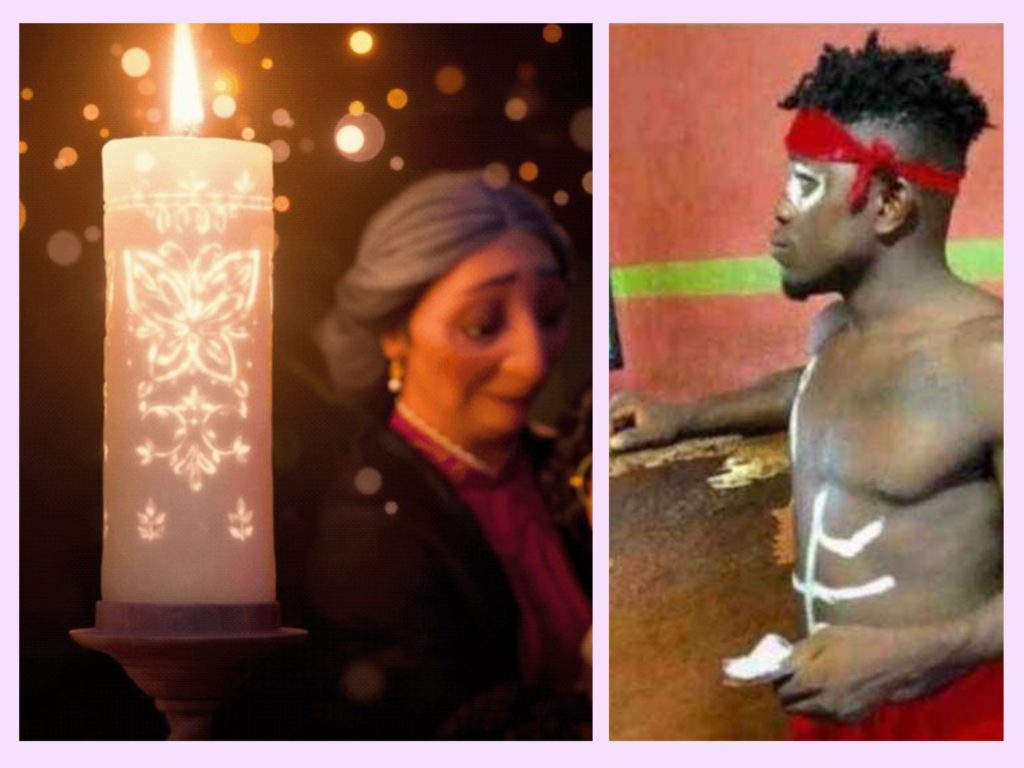
The Madrigals all get their powers from a magical candle? Haba. This one doesn’t need too much explanation and if you look at Abuela’s wickedness, the whole thing reads like a Nollywood film starring Patience Ozorkwor. The candle could easily have been chicken feathers wrapped in red satin and dipped in red oil. We’re surprised the whole village didn’t call a pastor to run a deliverance service or just pour a bottle of Ragolis on that bloody candle. It’s giving juju that went to Harvard.
RECOMMEND: What If Ozark Was a Nigerian TV Show
4. House is in shambles, but let’s force our daughter into marriage
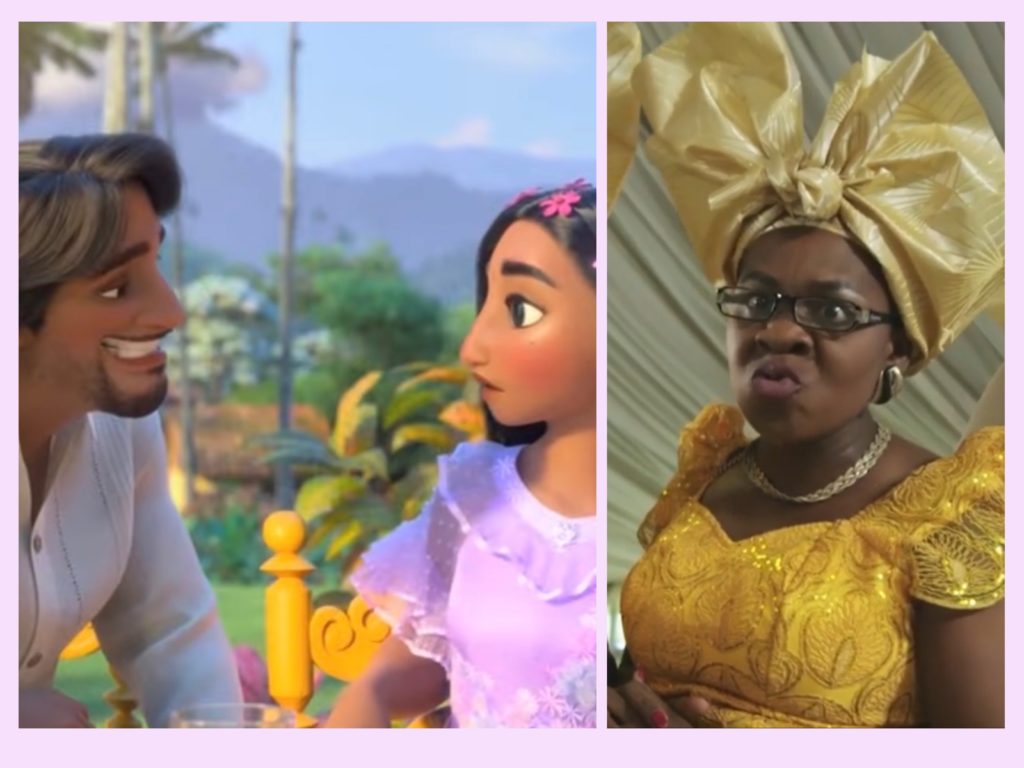
In Encanto, the biggest problem the family has — apart from that witch, Abuela — is the fact that their powers are dying and their house is literally falling apart. You would expect Abuela to ask the family to gather round to pray or mix cement, but, no, she’s trying to force her granddaughter into marriage. Sounds familiar? No matter the situation or trauma, one thing about Nigerians is that we must jaiye. Yes, our lives might be in shambles, but that doesn’t mean we’ll not enjoy ourselves and throw a party, abeg. Then there’s the pressure to get married part, but unpacking that trauma will require a bottle of wine and it’s too early for that.
5. Every Nigerian family has a Bruno, think about it
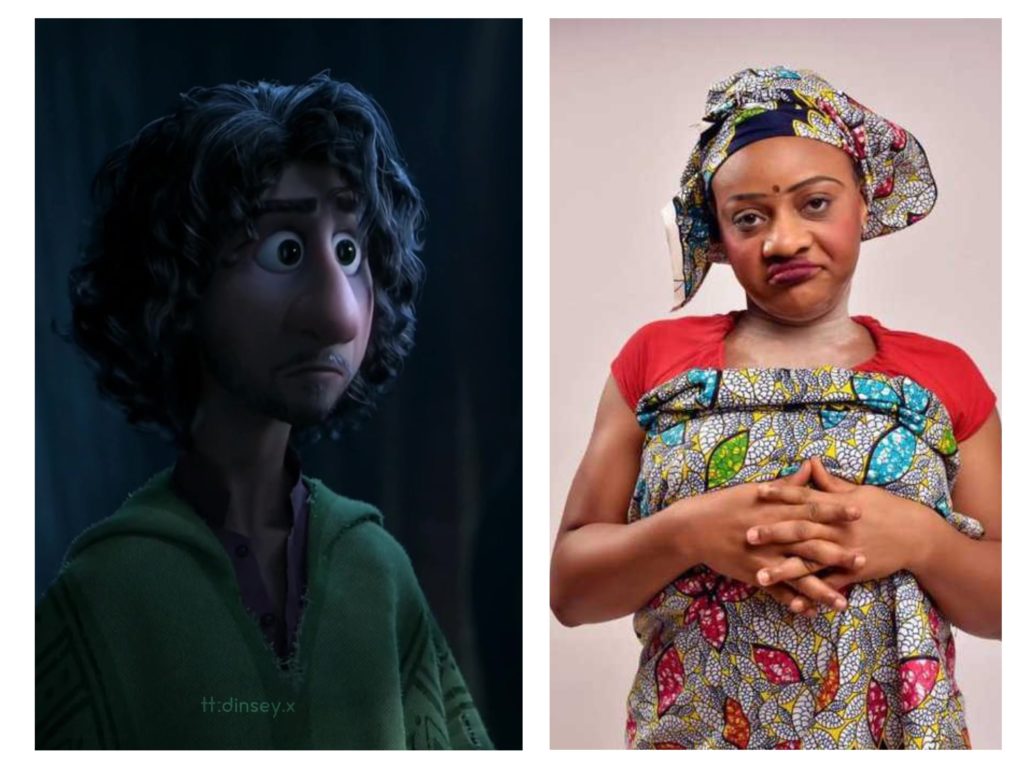
First off, we’re sure they put crack in that We Don’t Talk About Bruno song, because what? Music apart, the Bruno plotline is very familiar to us. Every Nigerian family has that one rebellious family member no one wants to talk about. The aunty that got divorced and refused to remarry, the cousin that dropped out of school and pierced his nose, the uncle that married someone everyone warned him not to marry, the list is endless. The weird part is, if you check on these people, they’re having a swell time, living their best life away from family expectations and pressures, so what’s the tea?
6. What will people say?
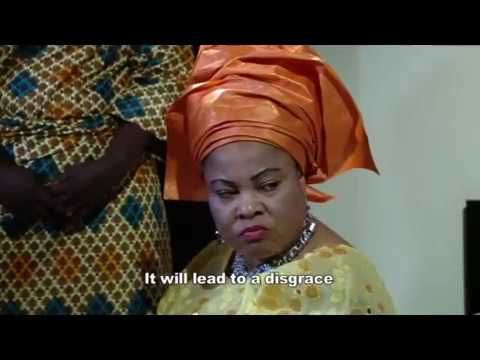
As young Nigerians, this is one question we’re used to. All you could do is breathe and a random family member is asking if you want everyone to look at you differently. This is the major driving force in Encanto — perception. Abuela doesn’t want the village to know the family isn’t perfect and that worse, they’re losing their power. Instead of addressing the problem, she places her focus on making sure everyone puts their best foot forward, publicly. Nigerian parents and Abuela are alike in this way. A majority of the issues a Nigerian parent will have with you are not based on their perception of the situation, rather, it tends to be built around what people might say about you.

